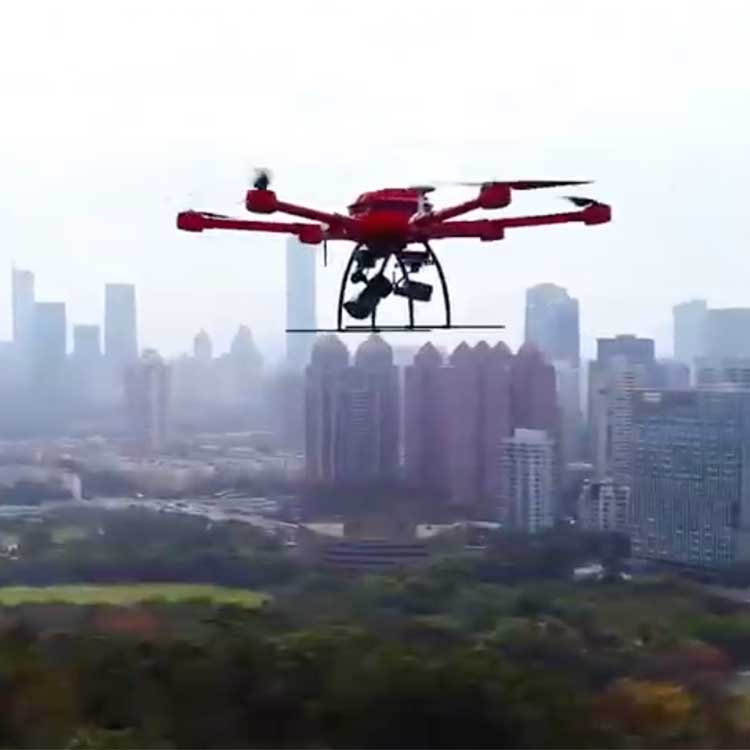Jason Lopez: Oh, that's really interesting. Um, I wonder how it's going to help us, this, uh, technology with tracking infections, uh, social distancing hygienic procedures. Uh, so you're saying that that technology is in place and it's working.
Kitty Fok: Yes, and I've continued to see people continues to develop new applications. One thing I also get excited is I start to see governments start to share the data more. So in Taiwan, the database for immigration and the healthcare system is LinkedIn within two days. So that now you get a records for this person, travel in other pack of the world coming back to Taiwan, whether they are likely to have um, infection, how likely this person can be effected and then what kind of pointing system that you need to put in place, um, for the person. So because of covert 19 actually speed up the whole thing of sharing database, make it more open so then we can create more application with more data, we can link together. And again, it helps us to track what's happening right now.
Jason Lopez: Yeah, that makes me think of the accelerated use of these technologies. The data being yielded. It sounds like there's a lot happening.
Kitty Fok: Absolutely. I think because of covert 19 as an urgency or the talents now they are with the act together to curate application or light to let phage to whatever available right now to create new application that can really move forward. Any fact we have run a multiple times of CXO, a sentiment survey. One of the things that keeps coming up from the survey is that now they really realize the importance, easy to move digital transformation forward foster and they really see the value of having the data to help the company to women resilience or after the covert 19 how they can we main competitive.
Jason Lopez: Yeah. That's an interesting insight. I was able to look through the overview of your report then. I have a couple of questions, but tell us more about the survey. What are you seeing right now?
Kitty Fok: I think um, we do see a few technologies really coming up very fast. Um, the video conferencing, especially for the kids step now they need to study at home. So you know, the [inaudible] the urgency to develop all this and move it online. I heard about it for many years ago. Uh, we should have education online, make it available for everyone everywhere with covert 19, it happened in a month. So again, one of the things that we really see is that the understanding of digital transformation, the second thing, what we hear from them is that how and what they should do to improve the capability of work remotely. It is not just about working at home and now they wouldn't need to connect everywhere in China outside of China to get the material that they need, how they actually get all this connection going and also how they can move to their marketing and business development online. So a lot of things, what we see from the survey is that they'll moving faster than before.
Jason Lopez: Yeah, they're moving online faster. They're going digital. Well, from what I understand, there's a short term issue of suppliers who, uh, supply parts to factories for manufacturing. There's a short term issue of uh, some delays in there, but there's this point where that tips into being a major problem, maybe even kind of catastrophic. And I'm wondering where your sense of that a tipping point might be. Where are the dangers down the road.
Kitty Fok: At this moment? Um, most of the factory in China day we open, but then outside of China, some of the factory, they, they shut down. So we continue to see that that is a infection outside of China. There is always a new strategies or thinking for all the company now is what we call is China plus one global supply chain strategies. This idea is not just happening right now. It seems last year when the U S China trade war begin, so that a company already thinking that while they should have some backup facility outside of China or now even outside of Asia. So I think the whole covert 19 make people realize the world is flat, that it's good, but in some point we do need to make sure that there is local supply chains vailable um, when things like this happen, every country they need to have their own supply. So what we see is the whole manufacturing system, poverty will change that with trying to plus one or more different allocation of facility, uh, in the world so that when anything happened that will be easier to switch around the materials.
Jason Lopez: So to provide just a little background, can you explain what China one is?
Kitty Fok: We did it. Good concept because a lot of the company, they have set up the beta factory facility in China, but when covert 19 happened or even like last year when there is a trade war between China and us, uh, that ESA, um, that is a stress in terms of production within China, distribute outside China or vice versa. So the company started to think about, well, given I have the facility in China already, I should also look at alternative facility outside of China. So I'm going to country BA have done a number of study to us about the membership and one of the things come out is that a lot of the international company that they have effectively in China, they're looking at set up a alternative factory in Southeast Asia, Vietnam, for example, India or Indonesia, so that they can actually balance out the output of the products.
Jason Lopez: Okay. So this might be a big complex question or it might be a dumb question. You know, fine line between a stupid and clever, but here's what I'm wondering. How does the pandemic outside of China say in the United States or in Italy or those places that it's especially affecting, how does that affect the tech industry within China?
Kitty Fok: I think, uh, first of all, let's look at some of the data when we write this report about the impact of Gulf at 19 we tried to actually compare to SARS, which is 17 years ago. So if you look at China in terms of the economics contribution, 17 years ago it was about 1.4 trillions, a us dollar, 4% of the global economy ranking. Number six. The manufacturing output at that moment was 8% of the global output rant number four. Today, China, it's 14 point 2 trillion us dollar, second largest economy in the world, 16% of the global economy. The manufacturing output is 27% of the global output in the world. That number one. So that is the reason why, um, since January when supposed to effect, we need to be, uh, we open after the Chinese new year. They couldn't affect majorly, not only China, but the global supply chains, not only for technology but effectful everything. So, so that was there the impact that we see in terms of um, China manufacturing output.
Jason Lopez: Yeah. So in many ways, you know, regardless of one's politics, uh, China's an integral part of a web of supply chains and manufacturing and, and marketing and, um, to anyone whose livelihood is intact. This is preaching to the choir. And, uh, it sounds so simple to say, but it's actually quite complex. This a global tech economy. And of course, that's what your job is, is to understand what these, uh, relationships and dynamics are from the politics all the way down to, um, the, the labor that goes in.
Kitty Fok: Well, I think everyone is actually in the very complicated situation right now. Um, you know, for all the enterprise today what they would they need to, we make resilience and we make agiles change is necessary. But one thing I really think is that for any company that can get out of it, they will be stronger. They could be the next giant. So, um, things like this, it just speed up the people to understand how important is, um, technologies or data at this stage and how we can really use it to help us.
Jason Lopez: Well, one thing that's become pretty politically charged in the United States, uh, during this pandemic is the idea that we need to bring factories back here, uh, bring factories back from China. I'm wondering what your sense of the reality of that is.
Kitty Fok: I think that, um, around the globe that you start to see, um, companies, they will actually bring back their manufacturing facility. But I'm not expecting like 100% because, um, at the end of the day, what you see the lesson from covert 19 is that you need to have like a witty, robust system that you can actually link your system that around the globe together so that when days, any shutdown in any facility, you can actually have your backup or you have other suppliers around the globe that can continue to supply all the material that you need. That is what we learn from this time. It is not really about where exactly they located, but it's really like a platform, a system. Now we can really share all this information and you can have a foster we action and then get the necessary material that you need around the world.
Jason Lopez: Yeah. Well, one of the outcomes of the world sheltering in place is that it might affect our habits in terms of how, you know, we use our devices and you know, that's whether those are good outcomes or, or maybe not so good ones. But what about manufacturing and smart factories? How is the pandemic changing the way Chinese companies are thinking about smart factories?
Kitty Fok: Well, I think that is definitely people will start think about it seriously. I think at the end how fast they can move on. The whole Neal strategy is really about the funding. What do we see in terms of cost effectiveness and how fast it can use all the smart manufacturing facility. So, um, I would think that a pandemic is definitely certificate enough to make everyone to think of the strategies right now. And there will be some change will happen, but how fast they can move on, uh, is really depends their own, um, company strategies. And in fact some of the government policy, I think the government way on the different policy as well, just to make sure if it happened. What we need to do. [inaudible]
Jason Lopez: Kitty Folk is the managing director of IDC China. She spoke with us from Beijing in this first of two parts of a conversation that we have with her. This is the tech Rovner podcast. I'm Jason Lopez. If you like this interview and you'd like to hear more stories on tech and the people behind it, check us out at The Forecast.















